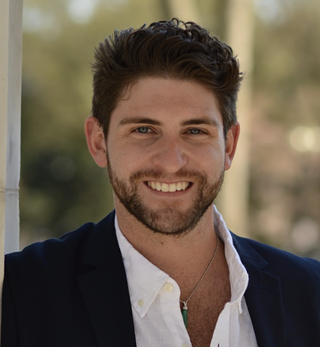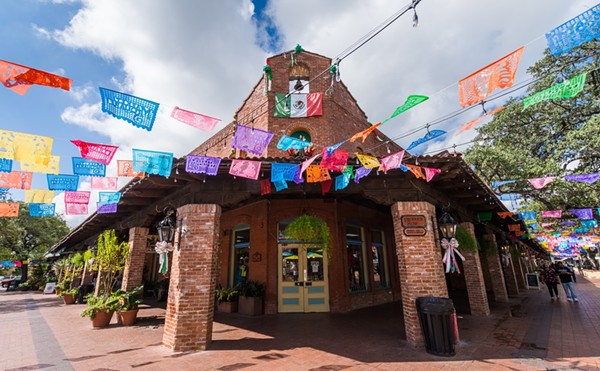
Although the topics at Austin's annual SXSW festival tend to skew toward tech and pop culture, this year's was awash in discussions on the future of psychedelic therapy.
At least 20 separate keynote speaker sessions addressed the topic, ranging from "Open Minds: Innovations in Consciousness, Psychedelics & Mental Health" to "Psychedelic Tech: Consciousness in the Modern Age." There was even a psychedelics-related networking event.
"It's definitely the future of therapeutic healing," said Alexander Hill, an Austin-based health and wellness entrepreneur, at an Inc. Magazine-sponsored gathering for startup executives.
The future envisioned by medical experts and entrepreneurs at SXSW doesn't involve bringing magic mushrooms or blotter acid into dispensaries operating in states that have already legalized recreational cannabis. Instead, they see psychedelic therapy replacing America's dependence on overprescribed antidepressants.
It's a shift already underway, even in conservative Texas, they maintain.
How it Works
"The things that are not normally processed, the unconscious material, those are normally below our level of conscious awareness," psychedelics guru David Nichols explained to a packed SXSW conference room. "But that material can be accessed by these neuronal cells when they're more excitable."
Administered in a clinical environment, psychedelics can excite those cells, added Nichols, a distinguished professor emeritus at the Purdue University College of Pharmacy. He's spent decades researching the potential health benefits of psychedelics, working on projects in collaboration with the private sector and the U.S. government.
Once those neurons are stimulated, it allows a patient to access memories in explicit detail from the past, Nichols continued. The memories can be good, bad or even traumatic. But reliving those memories is the most important part of the therapy, especially for end-of-life patients, those with substance abuse disorders and those with PTSD.
"For someone who is at the end of their life in existential distress, I don't believe that you're ever going to be able to give them a pill that will take away the fear of death and all the anxiety that they have," Nichols said. "When they get a psychedelic experience, they go back and do a life review. They look at their relationships with their siblings and parents. They look at the meaningfulness of their life — what they've done and what they have contributed."
Citing a New York University study, Nichols discussed a patient who used psychedelic therapy to overcome his alcohol dependency.
During the patient's trip, he went back to the time when he began drinking heavily, allowing him to understand what triggered his descent into alcoholism. The patient also examined how his drinking problem had affected his family and personal relationships.
"That's an insight he got from the psychedelic experience, which I don't think he'll get from a pill," Nichols said.
Available in San Antonio
Similar therapy is already going on in Texas, including San Antonio.
Jaime, a local man who declined to give his last name for fear of stigma, was encouraged to try out hallucinogenic therapy at San Antonio's IKARE, Mood, Trauma, and Recovery Center by his doctor. Traditional SSRIs and mood stabilizers failed to treat his Bipolar II disorder.
Jaime participated in two Ketamine treatment sessions at IKARE. In the weeks following his treatment, Jamie said he felt considerably better, was able to focus better on tasks and was "generally more at ease."
"Meds had never really worked very well, and it [ketamine] was probably the only treatment I've had that seemed to have an immediate benefit," he said.
However, after his second treatment, Jaime's insurance company said they would no longer pay for the treatments, which cost upwards of $230 per session.
Not For Everyone
Nichols told miraculous stories of patients overcoming substance abuse addiction, and Jamie said that he would recommend Ketamine treatments to people suffering from manic depressive disorders. However, experts caution that hallucinogenic therapy isn't for everyone.
"When a patient takes a psychedelic, before they take it, they have to be prepared for it," Rachel Yehuda, a professor of Psychiatry and Neuroscience at Mount Sinai Hospital, said during a SXSW discussion. "An important thing to understand when using psychedelic-assisted therapy in a clinical context is that one of the things that is going to determine what people are thinking about and processing during their psychedelic journey is what their intention is."
When patients enroll in psychedelic therapy, they may be forced to encounter unpleasant and even harmful memories. That said, psychedelic therapy isn't about reliving trauma but confronting it and overcoming that source of fear and distress, Yehuda said.
Even so, bad trips do happen. When Jaimie was at one of his Ketamine therapy sessions in San Antonio, he recalled hearing someone screaming in the next room, likely the result of an unpleasant experience on the drug.
Such bad trips are why experts recommend against self-medicating with psychedelics.
As Hill, the psychedelic entrepreneur from Austin, told the Current, if someone purchases shrooms on the street with the wrong mindset and dosage, it can be as dangerous as driving a Ferrari at high speeds down the Interstate.
Nixon's Drug War
Given the growing interest in psychedelic therapy and the growing evidence it can help treat a variety of psychological conditions, why are so many just now hearing about its potential?
Blame Richard Nixon, psychedelic guru Nichols said.
"Nixon's drug war started in 1970," he explained. "Now you're hearing the questions about how [psychedelics] work and how good they are. This is the result of 50 years of suppressed research on psychedelics."
Psychedelic therapeutics research could be decades ahead if Nixon hadn't waged war on psychedelics, which were embraced by the 1960s counterculture. As a result, Big Pharma pumped out SSRIs and antidepressants, which were overprescribed by the medical community, Nichols said.
However, states including Texas are becoming more receptive to alternative forms of therapy.
Last legislative session, the Republican-controlled Texas Legislature allocated funding to study the potential benefits of psychedelics on military veterans.
This session, three Democratic lawmakers are taking things a step further. A bill proposed by State Rep. Richard Pena Raymond would allow Texas to officially license a facility to offer psychedelic therapy to veterans and expand the existing study to include those who might benefit from hallucinogens other than veterans.
Another bill proposed by State Rep. Josey Garcia would create a state-run Psilocybin Research Advisory Council, while a bill filed by State Rep. Julie Johnson proposes the creation of an Alternative Mental Health Therapy Research Consortium, charged with researching alternative mental health treatments.
While Nichols and Yehuda admit that there's still a long way to go in psychedelic research, widening its availability moves the field forward.
"The problem with running trials on mice is that mice don't naturally have schizophrenia," Nichols said.
Follow us: Google News | NewsBreak | Instagram | Facebook | Twitter

















